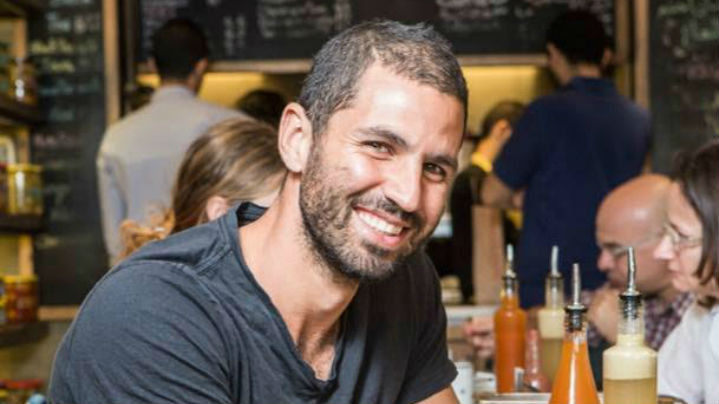When Zooba first opened, the chain was built on the concept of putting a gourmet twist on traditional Egyptian street food.
From one store in Zamalek to what has now become a chain with six branches, the business concept was challenging to prove at first, but quickly grew a dedicated customer base.
Now, founder Chris Khalifa is eyeing a regional, and then global expansion.
At the time it launched, there was a global trend of building concepts around street food or local cuisines. Khalifa wanted to do just that, promoting Egyptian culture through the food it is most known for.
We are representing an image of Egypt that we are proud of and I think customers view it the same way – there is pride in having something Egyptian at that quality
“Indirectly, we are selling something other than food, which is culture,” Khalifa says.
Khalifa is now determined to take this concept beyond Egypt so show something of the local culture in “a completely different light.”
Zooba’s next milestone is to open in the Gulf, starting with either Saudi Arabia or Dubai, before potentially embarking on a more international expansion.
Zooba has already helped put Egyptian cuisine in the spotlight, winning international awards as well as being featured by international media.
“We are very proud of what we are doing,” the founder says. “We are representing an image of Egypt that we are proud of and I think customers view it the same way – there is pride in having something Egyptian at that quality.”
After spending seven years as a banker, Khalifa opened Zooba in 2012 with the aim of innovating and enhancing the quality of ingredients of Egyptian street food, as well as building a brand around its rich culture.
“I saw a lot of concepts and a lot of businesses coming up and I came across many different businesses that I was advising [as a banker], and one of the things I found very interesting was retail in restaurants and the food and beverage sector,” Khalifa says.
While Egyptians were not used to eating street food with a gourmet twist, the concept was initially met with some skepticism.
What Khalifa noticed early on was that some customers stayed away from this type of food outside their homes out of hygiene and quality concerns. This is where Zooba had an edge.
“You can eat the food that you are used to eating for LE1.5, but you pay LE4-LE5 and get a bigger sandwich and better quality ingredients,” he says.
Still, there was a perception that Zooba’s bill of fare was overpriced. To tackle this, Zooba launched a campaign in Ramadan of 2016 explaining why it is more expensive than typical street vendors.
“We felt like there was a value issue with our brand – people were viewing us as having great quality and a great concept, but not as many perceived us as having great value,” Khalifa says. The campaign set out to answer exactly this point.
Before this point, Zooba’s sandwiches were an average of twice the size of similar sandwiches elsewhere. Khalifa decided that the brand should create another size with the same quality, calling it “Zooba slightly smaller.”
A place in the market
After a while, people began comparing Zooba not to street food vendors, but to other gourmet restaurants.
Zooba recently launched a website that has a detailed nutritional breakdown of its entire menu, explaining that they offer “real food” free of preservatives and additives.
Khalifa also boasts the benefit to the local economy. “A fantastic addition to the local market is our high employment rate,” Khalifa says. Zooba trains, develops and manages 220 employees.
“We see ourselves as almost half hospitality and half human resources – it really is a people’s business,” he adds.
This is where Khalifa’s mother, Liz Bernard’s, experience in development and training came into play.
After serving as the country director of AmidEast for 10 years, Bernard joined Zooba two years ago to “institutionalize the business.”
“She helped us set up the company’s values by creating a mission and vision,” Khalifa says. “She also helped us cement and document what our culture is and how our business is operating.”
Bernard worked with the Zooba team to implement a system where certain key performance indicators determine the staff’s profit share from a total of 10 percent of the monthly cash flow.
Commenting on the nature of the food and beverage industry in the Egyptian market, Khalifa says: “There is a perception that food always makes money because everyone is always going to eat, but if that is the perception of someone getting into the business, they are in for a terrible shock.”
Khalifa notes that each food and beverage brand has to find a unique selling point in order to stand out in the crowded market.









